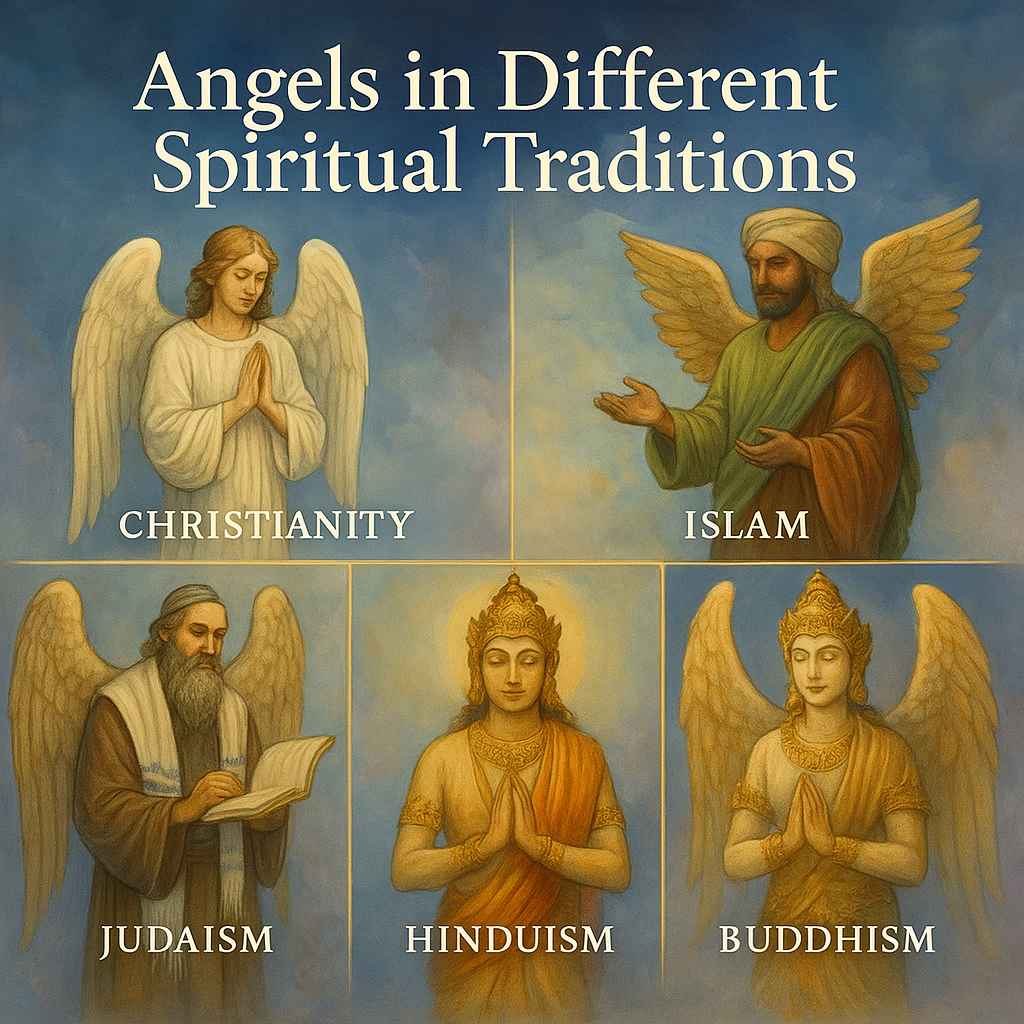Overview
Angels are spiritual entities found in many of the world’s religious traditions. They are typically considered as messengers, protectors, and servants of the divine. The concept of angels spans across various cultures and religions, each attributing different roles, characteristics, and forms to these celestial beings. This entry explores the depiction and significance of angels in Christianity, Islam, Judaism, Hinduism, and Buddhism.
Christianity
Roles and Beliefs
- Messengers and Protectors: Angels are God’s messengers, delivering His decrees and offering guidance and protection to humans.
- Guardian Angels: Each individual is said to have a guardian angel who watches over them, protecting them from harm and guiding their spiritual journey.
Key Figures
- Archangel Michael: Often depicted as a warrior angel who protects the faithful and battles evil.
- Archangel Gabriel: Known for delivering important messages from God, including the annunciation to the Virgin Mary.
Islam
Roles and Beliefs
- Messengers and Record Keepers: Angels serve as messengers of God and keepers of cosmic order. They are also involved in recording individuals’ deeds.
- Guardians: Angels guard against evil and guide believers in the path of righteousness.
Key Figures
- Jibreel (Gabriel): The angel of revelation, responsible for transmitting the Quran to Prophet Muhammad.
- Mikail (Michael): Responsible for providing nourishments to bodies and souls.
Judaism
Roles and Beliefs
- Divine Agents: Angels act as God’s agents in the world, executing His will.
- Intermediaries: They mediate between God and humanity, delivering messages and executing God’s justice.
Key Figures
- Metatron: An archangel in Kabbalistic tradition known for his closeness to God and role in mystical texts.
- Gabriel: Plays a key role in Jewish texts as a messenger and divine agent.
Hinduism
Roles and Beliefs
- Celestial Beings: Similar to angels, devas are celestial beings that help maintain order and play roles in the creation, protection, and destruction of the universe.
- Protectors: Specific devas protect the cosmos, humans, and their dwellings from evil influences and disasters.
Key Figures
- Indra: King of the devas, often equated with weather and war.
- Agni: The fire god who acts as the messenger between humans and gods.
Buddhism
Roles and Beliefs
- Protectors and Guides: While not angels in the traditional sense, various protective deities and bodhisattvas perform similar functions, protecting the Dharma and its practitioners.
- Celestial Beings: Beings like devas and bodhisattvas assist in the spiritual progress of practitioners and guard the teachings.
Key Figures
- Avalokiteshvara: A bodhisattva who embodies the compassion of all Buddhas.
- Mahasthamaprapta: Represents the power of wisdom.
Conclusion
While the concept of angels varies significantly across different spiritual traditions, common themes of guardianship, divine messaging, and moral guidance are universal. These beings bridge the human and divine, serving as protectors, guides, and messengers of the sacred. Understanding the role of angels in these various traditions provides insight into how different cultures interpret the divine and its interaction with the world.

